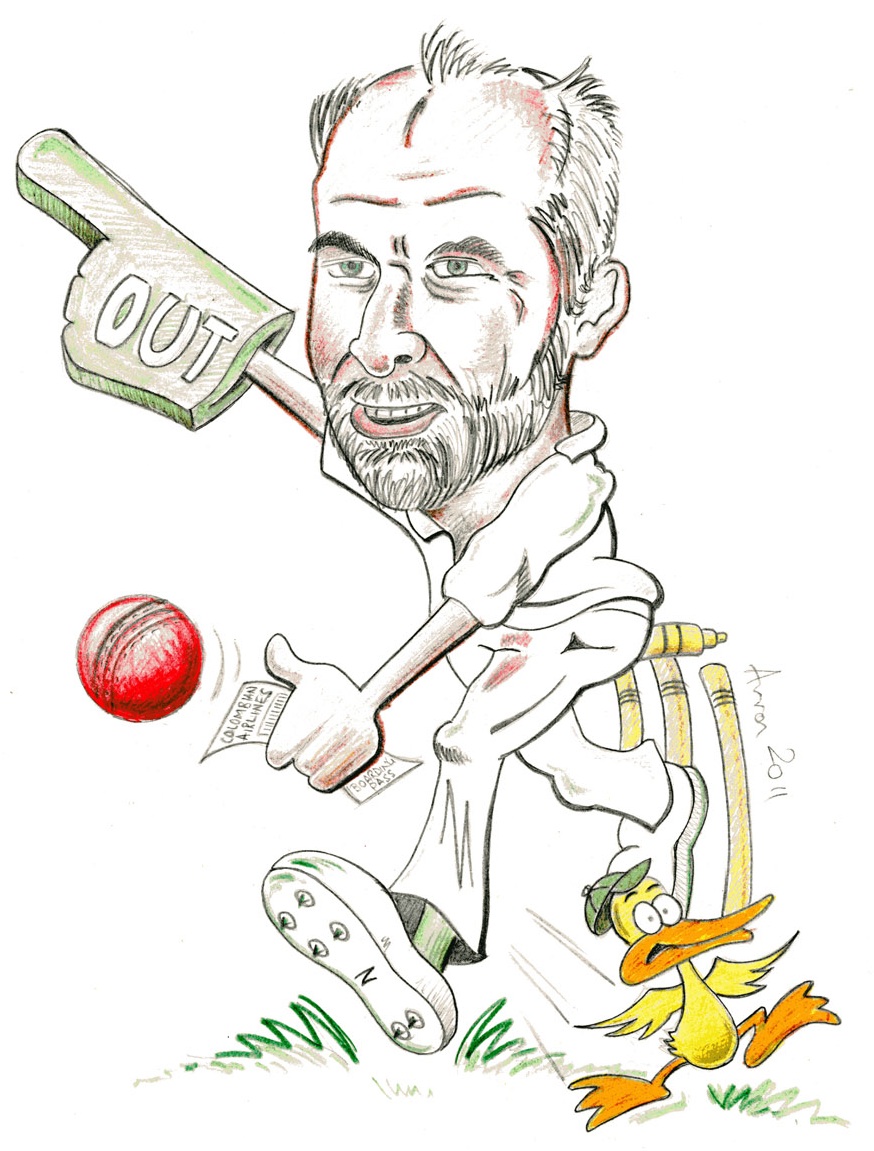
Colombia and Bill Quay have much in common. The former is one of the most biodiverse areas in the world including nearly 2000 different species of bird while the latter has many different types of sheep. They both host famous music festivals, Colombia has its Rock El Parque, the largest festival in Latin America, Bill Quay has the equally legendary Chickenstock, second only to Woodstock amongst ‘famous festivals that end in the word ‘stock’. They are also both named after famous explorers, Christopher Columbus and the infamous Bill Quay, who set off from Newcastle in a rowing boat to discover the New World but stopped for a pasty just outside Gateshead and never managed to move on.
And now they both have another legendary figure in common, Senor Tony Cleaver, the notorious novelist/academic/economist/demon bowler who returned from the home of the Andes to try and inspire Mallards to new heights in the nick of time as they sought a long-awaited victory against Bill Quay.
Skipper Wood for once lost the toss but after a long run of defeats batting second would probably have chosen to bat anyway.
An unlikely opening partnership of Taylor and Scutt took to the field and after a maiden over to start, the former got the innings moving with two crisp fours in the second over. Unfortunately Taylor’s lively start came to a premature end in the next over when he was bowled off an inside edge by P Hamblett for 9. Butcher joined Scutt and as the pair settled in the scoring initially dried up with Mallards reaching just 13-1 after 4 overs.
Thankfully things picked up in the next couple of overs with some sharp running and a cracking four from Butcher as 15 runs were quickly added but the seventh over saw the second wicket fall, Butcher bowled by P Hamblett for 8. New batsmen Buckley strode confidently to the crease whistling a tune from The Mikado to the consternation of the fielding side.
A first boundary for Scutt kept things ticking over but runs continued to be hard to get and at the halfway stage Mallards had reached a fairly paltry 46-2. P Hamblett had finished his spell of four overs with 2-9 and it was his namesake M Hamblett who struck next, bowling Buckley, from another inside edge, for 4. Wood now joined the durable Scutt at the crease but their brief partnership was halted in the next over when Scutt was finally bowled for 14.
With boundaries hard to find Wood and new batsman Scott started to push for singles, a policy that worked right up until the moment Scott was run out for 1 by a direct hit with the score on 56. Wisbach then joined the fray and the brisk running continued as the run rate started to lift before Wood was bowled for 4 to leave Mallards on 70-6 after 15 overs.
McGuinness came and went swiftly but not before hitting a crisp 4 but Wisbach was now starting to hit form. He was joined by local boy Browne and the pair finally started to give the innings some momentum with some big shots although Browne was perhaps a tad fortunate to survive a handful of dropped catches. When the latter was finally caught for 9 in the final over they had managed to take the score on to 101.
Finally it was time for our intrepid renaissance man to return to the fray. The returning Cleaver was sentimentally promoted to number 10 where he showed why he is normally number 11 as after four dot balls the innings ended on 102-8 with Wisbach’s unbeaten 24, including 3 boundaries the undoubted highlight.
With a below par total to defend Browne and Cleaver opened the attack but Bill Quay’s batsmen seemed keen to finish the game early, punishing anything loose and after six overs they’d raced to 45-0 with the only highlight for the fielding side a remarkable one-handed pick up of a fierce on-drive by Haylock who was almost immediately rewarded for his efforts by being given a bowl. The change of pace immediately put the brakes on albeit temporarily. Unfortunately his excellent start wasn’t matched by the fielders as three catches went down in one over, Messrs Buckley, Wood and Wisbach all failing to take their chances. At the other end McGuinness had more luck, taking Mallards first wicket of the night with a ball that started out at chest height only to dip at the last moment to clean bowl the startled batsman Lowe for 23. With his fellow opening batsman, another Lowe, retiring on 27, two new batsman were at the crease but sadly they also seemed to be in a hurry as 26 runs came off the next two overs to leave the home side sitting pretty on 80-1 from just 10 overs. Haylock finished his spell with 0-23 from three overs, McGuinness 1-18 from 2.
Wisbach was next on and continued his good night with only three runs coming from his first over. Scott’s first over looked as if it would be the last when, after an early boundary his fifth ball was also despatched to the distant corner of the ground, batsmen Hayden walking off as it flew along the ground, having reached the retirement total of 25. Embarrassingly he hadn’t accounted for the determination of McGuinness who ran round the boundary and cut the ball off inches from the rope. Hayden returned to the crease, shame-faced and proceeded to smash the next ball for four instead. The end came from the first ball of Wisbach’s next over, another four bringing the game to a premature end in just 13.1 overs.
The beer was nice.
